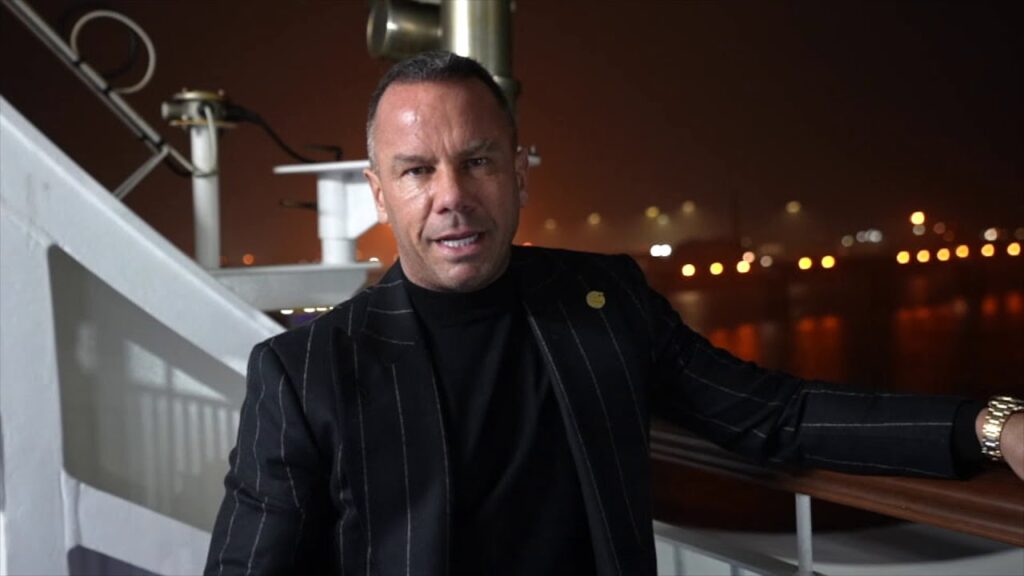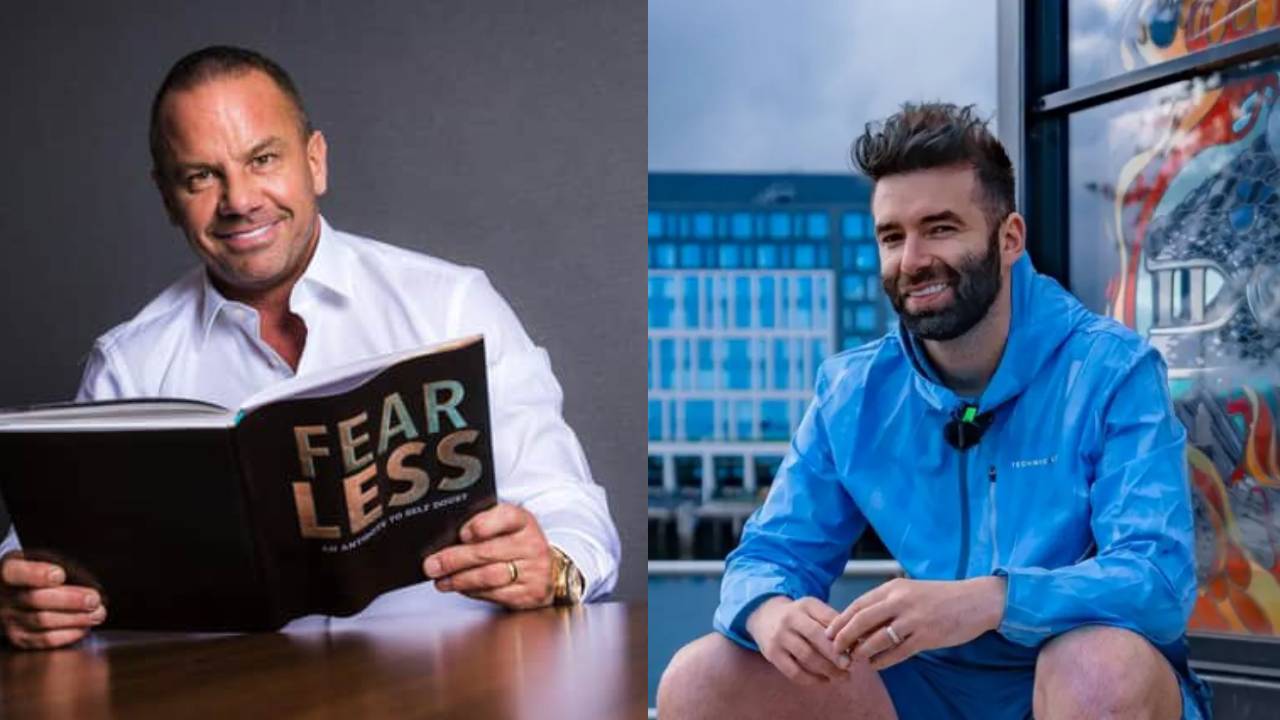Tom Smyth and Darren Campbell are household names in Northern Ireland’s business scene. They’ve built impressive followings by presenting themselves as self-made success stories, leveraging social media, motivational content, and mentorship programs to inspire others. But beneath the polished Instagram posts and power speeches, there’s a more complicated narrative that’s worth exploring.
This article provides an in-depth look at their methods, achievements, and the skepticism they both face, along with insight into their business models, client reviews, and community impact.
The Metrics of Success: Are Their Claims Backed by Numbers?
One way to assess an entrepreneur’s credibility is by looking at hard data—something often missing from their promotional content.
- Darren Campbell: His FBA Brand Builder program boasts numerous participants, but detailed statistics on client success stories are hard to come by. While Campbell frequently highlights impressive revenue targets and mentions people achieving substantial monthly incomes through Amazon sales, specifics on long-term business sustainability are sparse. This leaves potential clients wondering how many have actually translated the program’s lessons into consistent profit.
- Tom Smyth: Smyth’s Dream Luxury Serviced Apartments business spans multiple countries, including Berlin and Paris, and was reportedly planning to expand to 600 units by 2022. While the numbers sound ambitious, concrete revenue data or verifiable success metrics would strengthen the credibility of his claims.

What Are Clients Really Saying?
Public feedback and client testimonials can reveal a lot about the value these entrepreneurs provide:
- Campbell’s Client Feedback: His FBA Brand Builder has mixed reviews. Positive feedback often praises his motivational style and the energy he brings, but criticisms point to a lack of practical, detailed guidance. “Campbell’s responses sound great at first but often lack depth,” one user mentioned on Reddit, encapsulating the sentiment that his approach may leave clients inspired but underprepared.
- Smyth’s Client Experiences: Client testimonials for Smyth are harder to find in formal business reviews. On social media and platforms like Reddit, opinions are more candid. Some users voice admiration for his story of resilience, while others express strong doubts about his trustworthiness. One Redditor said, “I wouldn’t trust him as far as I could throw him,” reflecting widespread skepticism about his business practices.
Breaking Down Their Business Models
Both Smyth and Campbell operate mentorship and coaching programs, but their approaches differ in scope and focus:
- Darren Campbell’s FBA Brand Builder: This program zeroes in on teaching individuals how to launch and scale Amazon businesses. It covers topics like product sourcing, ad strategies, and market analysis. However, critics argue that Campbell’s focus on high-level motivation over granular, actionable advice limits the effectiveness of his teachings.
- Tom Smyth’s Mentorship and Real Estate Ventures: Smyth’s offerings cover mentorship rooted in his real estate experience. He positions himself as a mentor who can turn people’s business aspirations into reality, leveraging his own story as proof. However, the mentorship’s true depth is unclear, and legal issues related to misleading advertisements further muddy the waters..
Social Media: The Double-Edged Sword
Both entrepreneurs excel at using social media to project an image of success, but this tool can be a double-edged sword:
- Smyth’s Social Media: His Instagram is a mix of motivational posts, luxury settings, and glimpses into his daily routine, portraying him as disciplined and driven. However, as one Reddit user remarked, “It looks great on the surface, but what’s really behind it?” This sentiment suggests that some see the curated posts as a veneer rather than genuine proof of business acumen.
- Campbell’s Online Presence: Similarly, Campbell uses his platforms to showcase a narrative of relentless ambition and success. His content is high-energy, often sharing tips or motivational snippets aimed at getting people to “do whatever it takes.” While this resonates with many, it invites criticism for focusing more on self-promotion than on offering practical insights.
The Entrepreneurial Persona: Image Versus Substance
Both Tom Smyth and Darren Campbell share striking similarities in how they project their entrepreneurial journeys to the public, using aspirational messaging and personal stories as key tools. But behind the motivational quotes and dramatic narratives, a closer look reveals why potential followers should approach with caution.
Tom Smyth's Approach: In his YouTube video, A Day In The Life Of An Entrepreneur, Smyth combines philanthropy, relentless work ethic, and personal anecdotes to create an image of success. He repeatedly uses high-energy affirmations like, “Let’s fucking go,” emphasizing his driven personality. Smyth’s portrayal centers on being unyielding, declaring, “I’m relentless. I don’t know how to give up.” He projects his “unbreakable mindset” as both proof of his achievements and a reason why his mentorship can inspire others. Yet, this emphasis on sheer belief and a tireless mindset may come off as surface-level without detailed insights into his business acumen or strategies.
Darren Campbell's Messaging: Similarly, Darren Campbell leans heavily on the idea that self-belief is the core of success. As seen in one of his motivational posts, Campbell states, “The difference between being successful is either believing in yourself or not... you either believe in yourself or you don’t.” While this message resonates with those looking for hope and inspiration, it mirrors Smyth’s language, focusing more on mindset than on actionable guidance.
Common Themes and Caution for Potential Clients: Both Smyth and Campbell frame themselves as self-made figures whose achievements are fueled by unwavering confidence. This narrative, while compelling, risks oversimplifying the complex reality of entrepreneurship. For example, Smyth’s video often showcases grand events like running the stair equivalent of Mount Everest for charity, underlining his commitment to big gestures over detailed insight into running a sustainable business. Similarly, Campbell’s Instagram stories spotlight celebratory moments and messages emphasizing belief and community success, such as those shared by mentees like Ryan Stewart and Aoife.
Potential clients should recognize that while such stories and high-energy proclamations are motivating, they often lack transparency about the real frameworks or strategies that lead to consistent, long-term business growth. To ensure they are investing in more than just hype, individuals should seek out specific examples of educational content, client feedback, and verifiable business results.
Community Impact: Genuine or Just Branding?
The local influence and real-world impact of these entrepreneurs are also worth examining:
- Darren Campbell’s Community Engagement: While he’s portraying himself as an expert in the Amazon seller community, Campbell’s influence seems most focused on expanding his brand rather than contributing to broader entrepreneurial efforts in Northern Ireland. There’s little evidence of participation in local community projects or partnerships that extend beyond his direct business interests.
- Tom Smyth’s Local Reach: Smyth has been involved in multiple business ventures in Belfast, impacting the local real estate scene. However, with a history of legal issues and skepticism voiced by local residents, his reputation remains a mixed bag. Some see him as an ambitious entrepreneur helping revitalize parts of Belfast, while others consider him more of a self-promoter with questionable business practices.

Legal and Ethical Questions
A key area that differentiates successful entrepreneurs from those who are merely good at marketing is their track record with ethical business practices:
- Tom Smyth’s Legal Challenges: Smyth has faced legal issues, including a case related to misleading advertising. Such incidents fuel skepticism and provide fodder for critics who question the legitimacy of his business empire.
- Darren Campbell’s Approach: While Campbell has not been associated with specific legal controversies, his approach has been critiqued for being more about selling the dream than supporting clients with actionable, ethical guidance. His programs can sometimes feel more promotional than educational.
How They Compare to Other Entrepreneurs
Comparing Smyth and Campbell to other well-known figures in the motivational space, like Grant Cardone or Tony Robbins, highlights their reliance on a familiar playbook: motivational storytelling, personal branding, and programs designed to inspire. However, while Robbins and Cardone back their advice with decades of detailed expertise and proven results, Smyth and Campbell’s offerings often lean more toward aspirational promises.
Final Thoughts: What You Should Consider
Tom Smyth and Darren Campbell share a playbook full of motivational messaging, lifestyle branding, and mentorship programs. They embody the modern entrepreneurial archetype, blending genuine achievements with savvy marketing. Yet, potential clients should approach with a critical eye. Make sure the mentorship, workshops, or courses they offer come with tangible value beyond just motivational speeches. It’s worth peeling back the layers to see if the promise matches the reality.
Ultimately, genuine success often speaks for itself. Those who are truly making money and achieving sustained growth rarely feel the need to flaunt their wealth or sell courses to prove it. For them, the results are evident in their work, not in their marketing.

